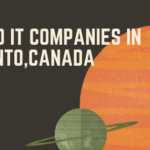The world of work is changing rapidly—you need the right tools to change with it.
The year is 1958. NASA is born, Wham-O introduces the Hula Hoop, and the average tenure on the S&P 500 is 61 years. Flash forward to 2016. NASA’s Juno spacecraft orbits Jupiter, the Cubs win the World Series, and the average S&P tenure is 24 years.
At this rate, a full 50% of the S&P 500 will be replaced over the next decade. Did I get your attention? Because the message has never been more clear: adapt or die.
The future of work is more agile, decentralized, autonomous, cross-functional, and integrated than most organizations can imagine. That which is analog must be digitized. That which is manual must be automated. That which is isolated must be connected. That which is hidden must be made visible.
This changes everything—including workflow. And the question isn’t whether it will occur, but how.
A shift into “pull-based” workflows
The roles we fill at work are changing, too. As teams are empowered to make more decisions and rely less on hierarchy for control, they will trend toward “pull-based” workflows. Instead of waiting for a manager or a ticketing system to tell them what to do, teams will seek out the most valuable work they can find—from their own backlog, a shared space, or simply by sensing and responding.
This transition will lead to workflows that are less “actor and reactor” and more about an interconnected network of empowered agents using the same system to get their work done. And it will require a platform that can seamlessly connect every corner of the enterprise to succeed.
Next-gen employees demand next-gen tools
The entry of Gen Z— the “learn anything” generation—into the workforce is also forcing change. Gen Z expects to find everything they need to know on YouTube or Google. And as the first “no code” hacker generation, they expect to customize, connect, and even create technology with very little technical knowledge—just a willingness to dig in and get their hands dirty.
Younger workers want intuitive tools that allow them the flexibility to work anywhere, anytime. To a generation raised on the iPhone, workplace experiences should go beyond being mobile-first to being mobile-only. As a result, the stark divide between seamless consumer technology and awkward enterprise software is becoming more obvious and less acceptable.
Ultimately, the employee experience of the future will be shaped by and for these new roles and players. And the quality (or lack thereof) of the employee experience will continue to be a primary differentiator for organizations trying to attract top talent.
New software is shaping new behavior
Amidst all this cultural change and demand for effortless, consumer-like work experiences, a rift is growing between IT and employees. It’s a showdown between old-school, centralized IT and the demands of a new workforce—and the legacy team is losing.
Groups are setting up their own shadow Slack workspaces, Trello boards, WeChat, and ad hoc tools with little or no blessing from IT. Built as singular tools with a specific purpose, these applications integrate easily with other tools outside enterprise platforms. This allows teams outside of IT to build and maintain automated workflows of their own.
We are seeing in real time the power of software to shape behavior.
When software continues to reflect a waterfall project-management style with layers of bureaucratic approval and compliance checks built in, the status quo will remain intact. But those businesses that adopt new ways of working on a platform that supports digitized workflows to connect the entire enterprise can move forward. Because when software defaults to transparency, supports networks and fluid teams, and enables users do their work the way they want, companies can unlock meaningful change at scale.
So the message is: show me your software, and I’ll tell you what kind of enterprise you are. You can guess which kind is going to remain on the S&P 500 in years to come.
75% of Fortune 500 companies today depend on the Now Platform® to connect their enterprise with powerful digital workflows.
If your business needs servicenow workflow automation,We at HunterTech has the right team and experience,Contact us : hello@huntertechglobal.com
Source: Forbes



Leave a Reply